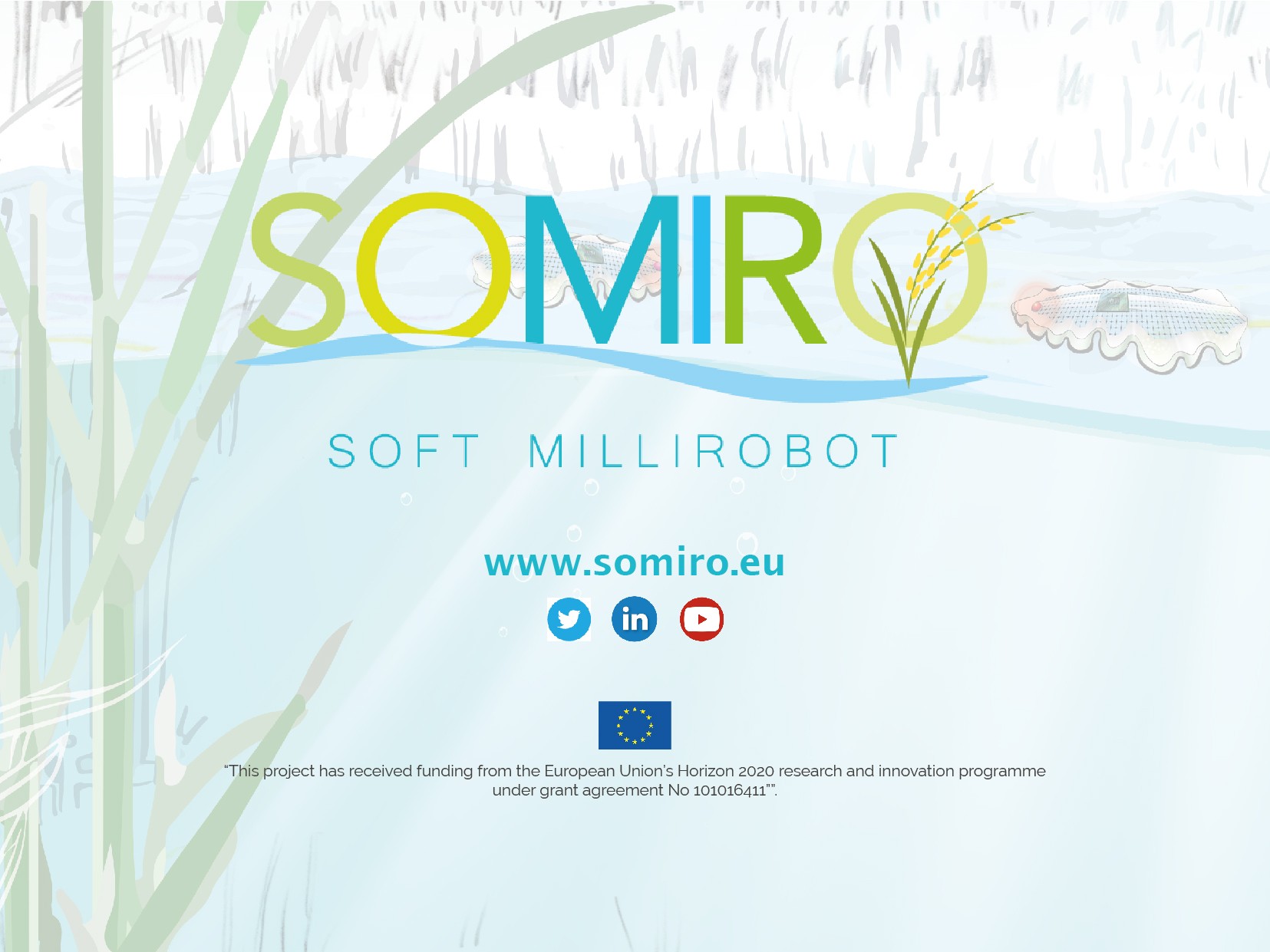Swimming soft milli-robots to improve water quality monitoring in precision agriculture: SOMIRO project online now!
SOMIRO project, that will last 3 years, has received a contribution of about 3 million euros by the European Commission, it is coordinated by the Microsystem Technology Division of Uppsala University and it put together nine partners, from academia and industry, from six different European countries. The SOMIRO project will develop a flat-worm-inspired mm-scale swimming robot with month-long energy autonomy, local intelligence, and ability to continuously generate data and optically communicate. The project should demonstrate the potential for reducing the environmental impact of farming in terms of carbon footprint, eutrophication, and excessive use of pesticides and feed. These swimming robots would cover a much larger area than stationary systems and could be rapidly deployed and self-redistribute where most needed. They may serve as a stand-alone monitoring solution for indoor farming or complement drone-based remote sensing outdoors. Until today, no energy autonomous (with local intelligence and untethered) milli-robot has been demonstrated capable to withstand hours of continuous operation. The major reason is power limitation: locomotion requires much power and small robots have very limited energy storage and energy uptake. SOMIRO milli-robots will be less than 1 cm long and look like flatworms in the ocean. They should show that soft and stretchable systems require much less energy for movement than other robots of comparable size. To power, they will not rely on any dedicated infrastructure but only on natural sunlight. SOMIRO soft milli-robots will be initially tested in two different types of water environment, an aquaponic system and a paddy field, both located in Italy, but in the long-term, SOMIRO will be able to provide new tools for different areas of precision agriculture. Visit SOMIRO’s website and find out more: https://www.somiro.eu(opens in new window) PARTNERS: Uppsala Universitet (Sweden), École Polytechnique Fédérale de Lausanne (Switzerland), Max Planck Institute for Intelligent Systems (Germany), Universität Linz (Austria), Fundación IMDEA Networks (Spain), Mycronic AB (Sweden), Battioli Paola Società Agricola S.S. (Italy), The Circle Società Agricola a Responsabilita Limitata (Italy), Warrant Hub SPA (Italy)



